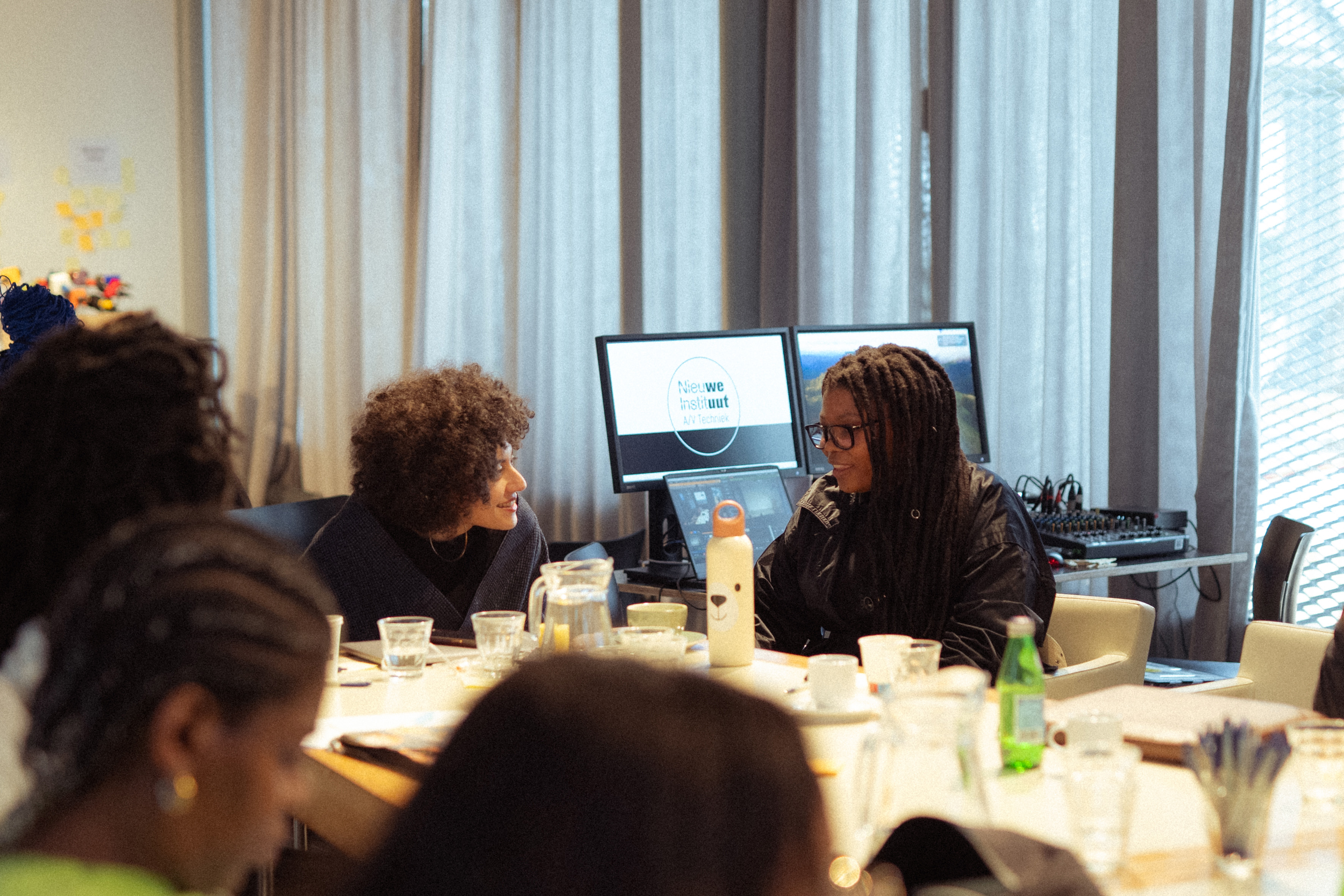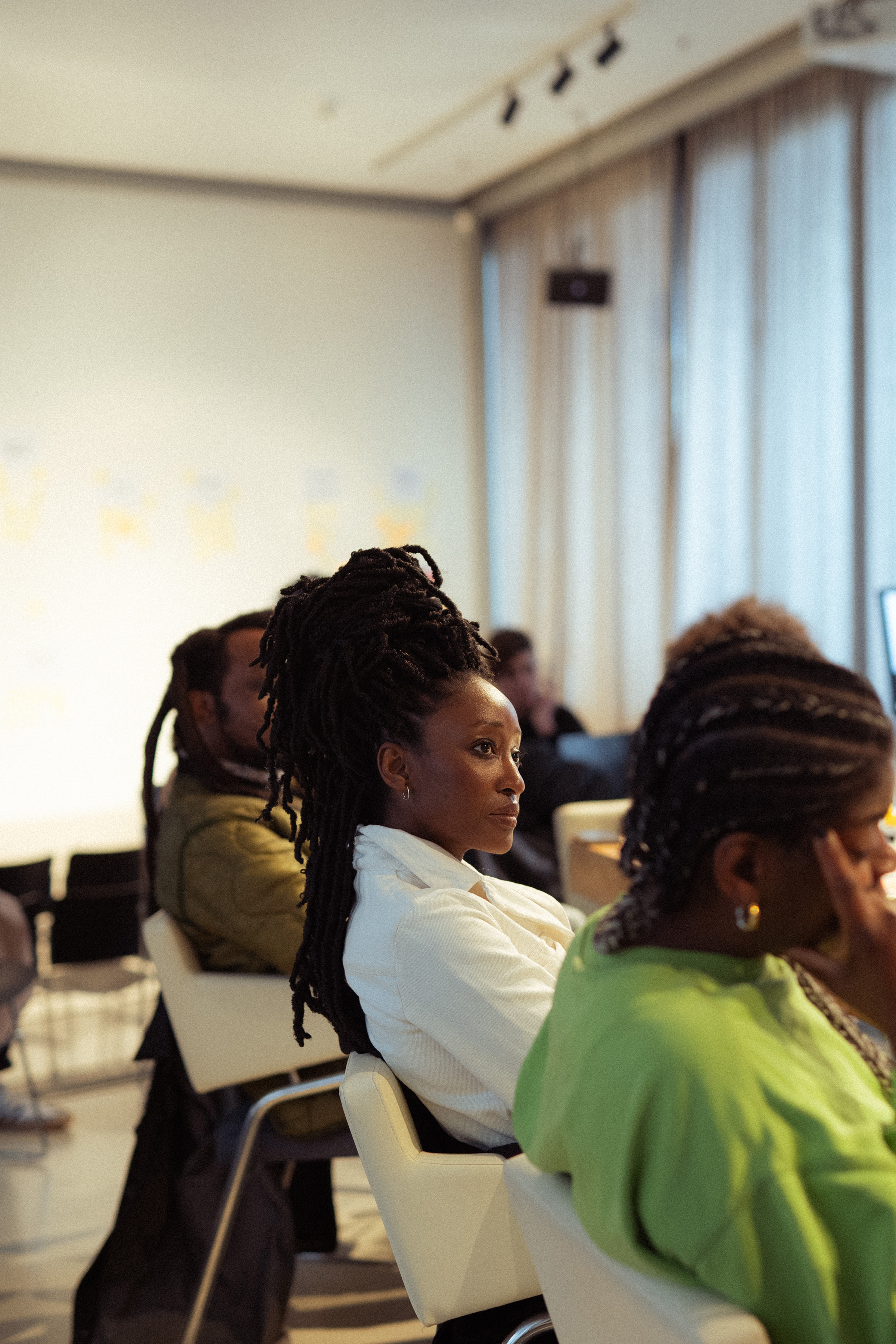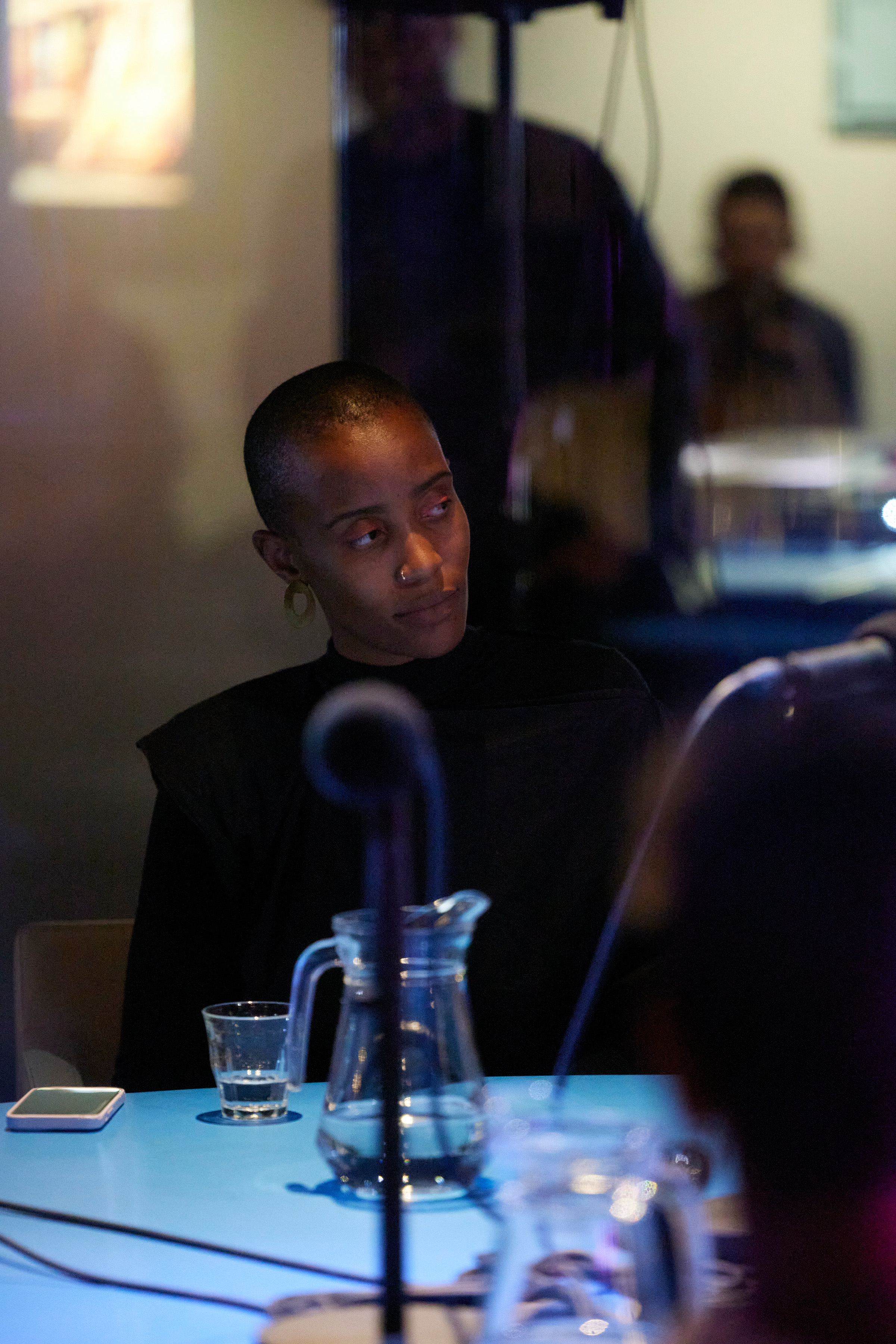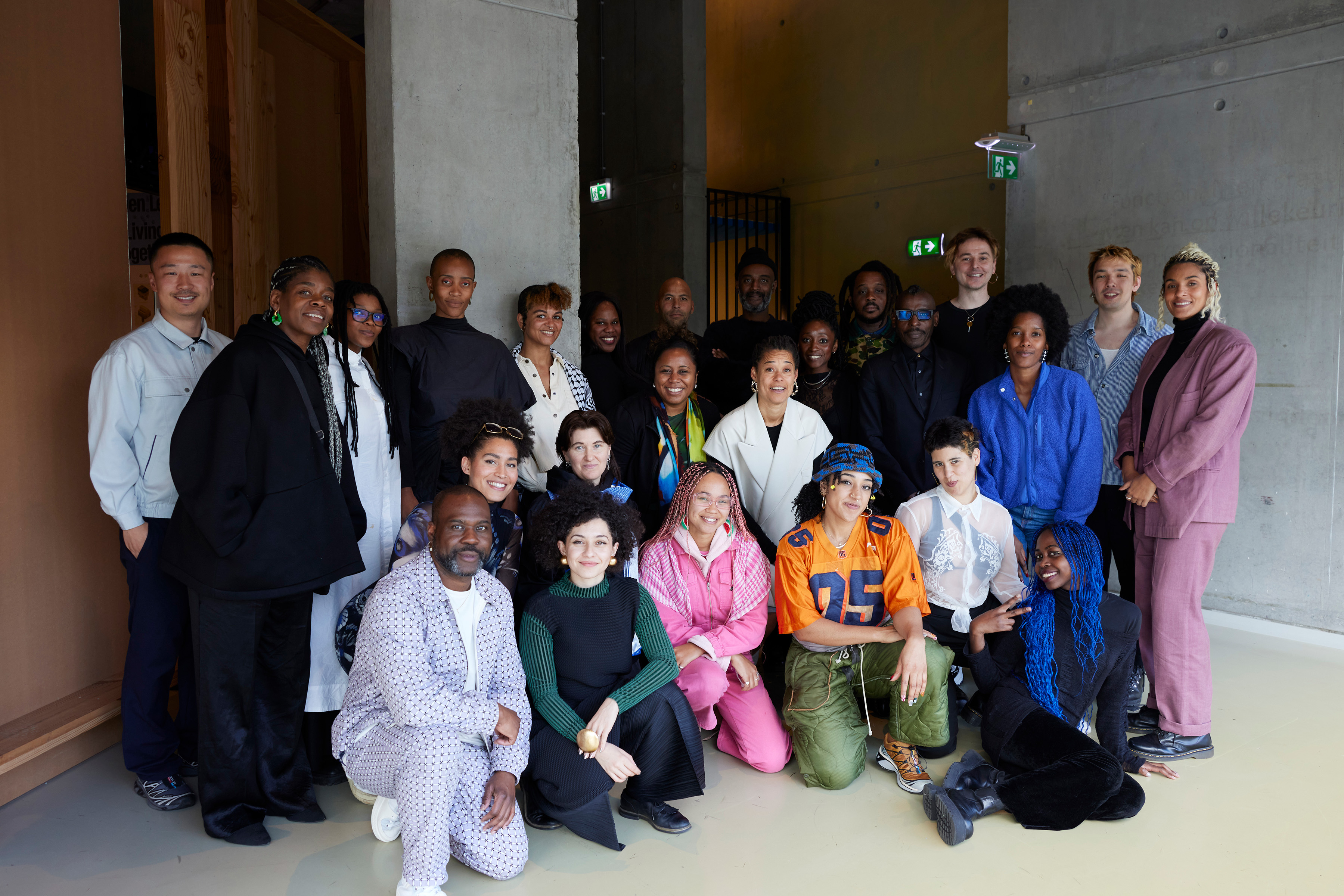Embodied Restoration Lab
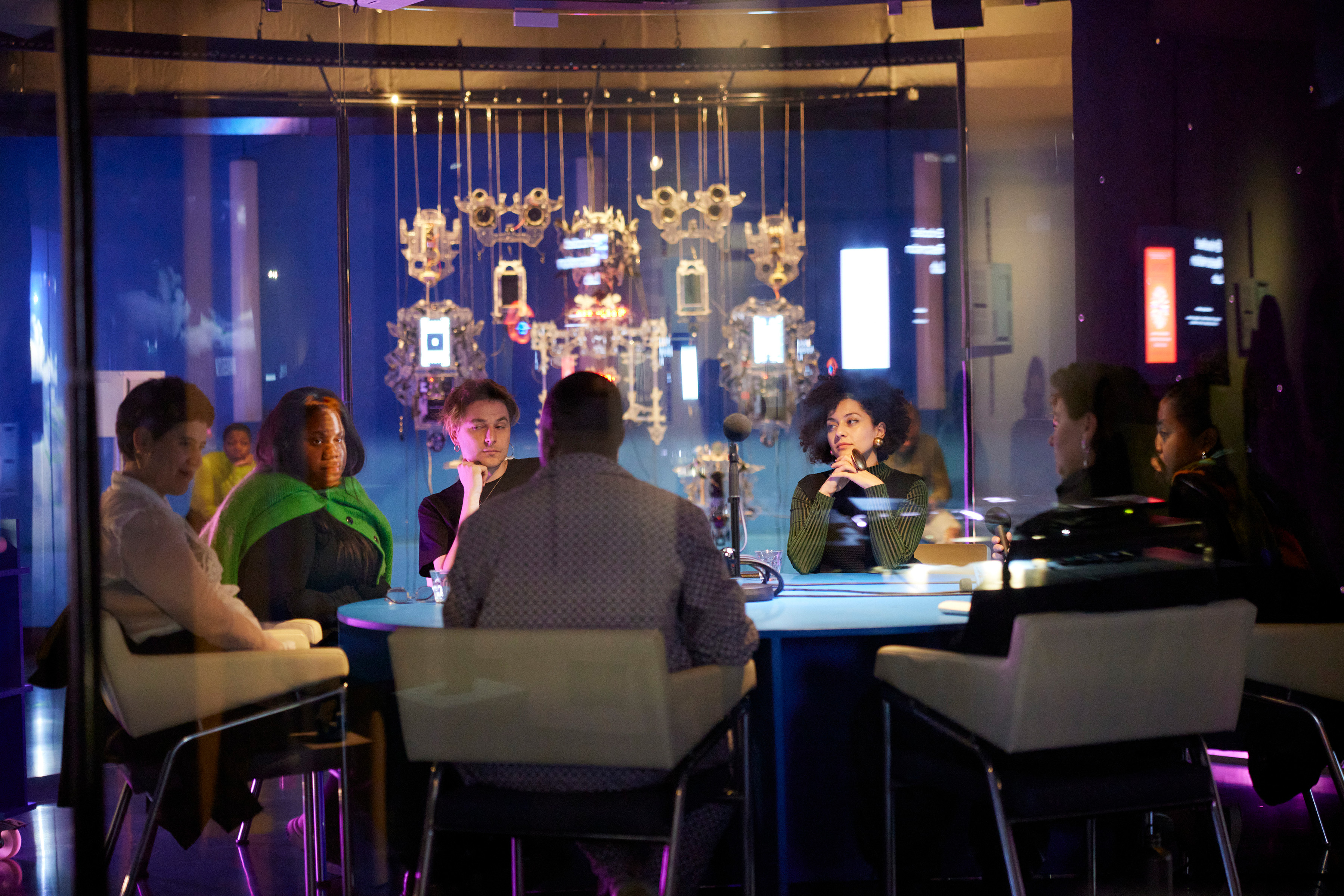
Meriem Chabani was invited to participate in symposium.
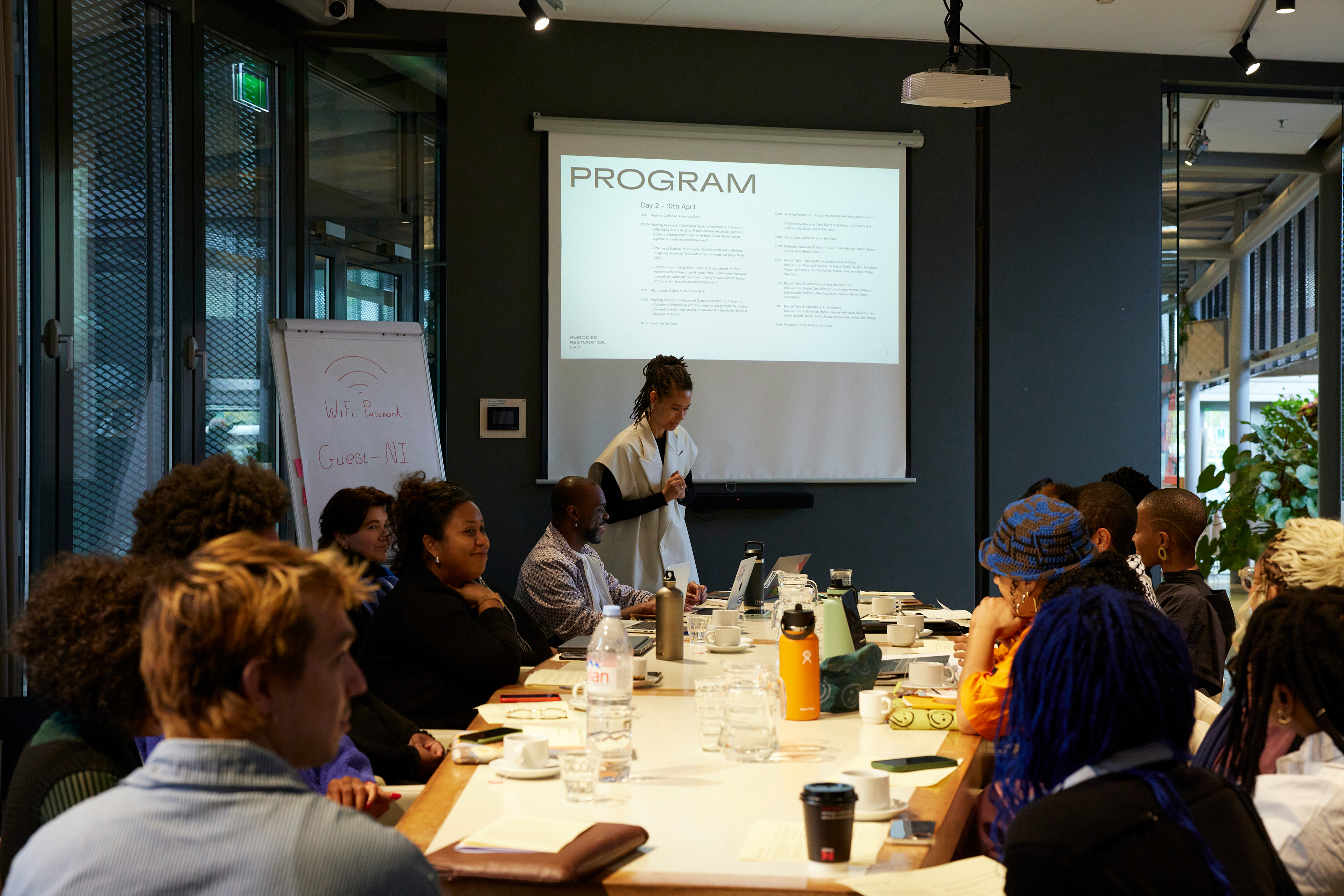
Artificial intelligence permeates our daily lives, from the mini computers we carry in our pockets to the algorithmic technology designing our built environment. These manmade technologies reflect us, our ideologies, our values—for better or for worse. As AI continues to embed itself in every aspect of our existence while reflecting the hegemonic power structures governing us—extractive capitalism, racism, the devaluing and erasure of traditional knowledge systems—there is a critical need for systemic change within these tools themselves, particularly as AI begins to influence the world at large. Whose values will shape the world-shapers’?
The Embodied Restoration Lab, an initiative conceived by architect and researcher Afaina de Jong, asks architects and designers to imagine a new kind of AI model: one that recognizes resource scarcity among various ecosystems, that prioritizes oral or diasporic knowledge, that considers accessibility needs, that moves away from paradigms of colonialism toward a more equitable future—and advises its users accordingly. As the founder of AFARAI, an Amsterdam-based studio rooted in feminist practices, de Jong has long considered the ways in which, she says, “what we can imagine as humans, as designers, and as architects is unmistakably tied to the technologies that we use and its inherent values and standardizations.” Architecture has its foundations in extractive ideologies and practices, she explains. If we change the algorithmic tools from which architects learn—the technology that helps them dream—then perhaps we can fundamentally change the world around us.
At the Embodied Restoration Lab symposium this past spring, architects, designers, and researchers gathered to teach AI new knowledge systems, and to discuss their hopes and fears for the future. Below, de Jong introduces the Embodied Restoration Lab, the questions that prompted its development, and what raising an AI—like a baby—might look like.
(Source: revisions plateform)
Podcasts of the roundtable discussions are available on the revisions plateform.
Photography: Mishael Phillip Fapohunda, Romy Zhang
